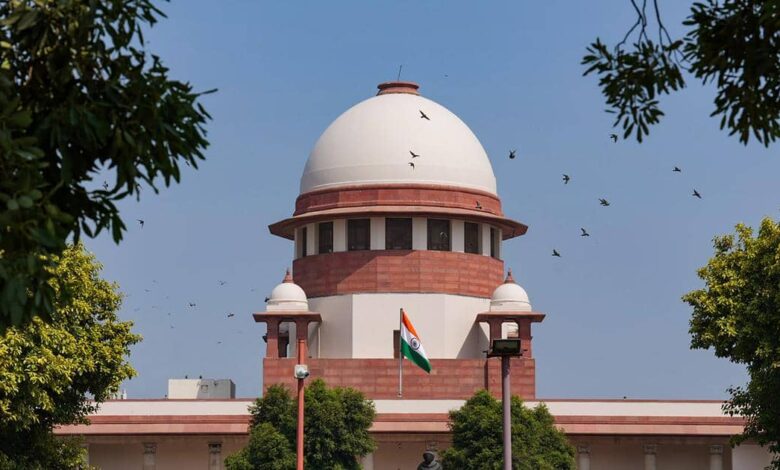
The Supreme Court termed as “highly objectionable” remarks by the Patna High Court on makeup articles used by a widow in connection with a murder case. This observation came when the Supreme Court was hearing appeals against the judgment of the Patna High Court in a murder case of 1985 in which a woman was said to be abducted and killed after the death of her father to take possession of his property.
The Patna High Court had confirmed the conviction of the five accused in this case and reversed the acquittal of two co-accused, sentencing them to imprisonment for life. A bench of the Supreme Court headed by Justices Bela M Trivedi and Satish Chandra Sharma observed that the high court had examined whether the prosecutrix was residing in the house from where she was allegedly taken away.
The Supreme Court pointed out that the high court relied on the testimonies of the maternal uncle and brother-in-law of the victim and the investigating officer to conclude that the victim was staying in the house. “However, the investigating officer himself had not found any direct evidence whatsoever to corroborate the factum of staying of the victim in the house, except some articles of make-up,” the bench said.
It was further pointed out that another lady, a widow, lived in the same part of the house. This fact was related by the high court but was brushed aside by holding that she would not require the makeup utensils and, therefore, the recovered makeup items must have belonged to the victim.
The Supreme Court frowned upon this logic:
“The observation of the high court is not only legally untenable but also highly objectionable. A sweeping observation of this nature does not align with the sensitivity and neutrality expected of a court of law, particularly if it is not founded on any evidence.”
The bench observed that the mere availability of make-up articles cannot prove, beyond doubt, that the victim was staying in the house, especially since there was another woman in the house. It also held that no clothes or footwear belonging to the victim were found in the house.
The incident relates to August 1985, in which the victim was abducted from her house in Munger district. An FIR was lodged, and charges were framed against seven accused persons. The trial court convicted five of them for murder, and two were acquitted.
In its judgment, the Supreme Court said there was no direct evidence to link the accused with murder. “Motive would play a role only when substantial evidence was available to prove the case. Without foundational evidence, the prosecution cannot succeed based on motive alone,” the bench explained.
Finally, the Supreme Court exonerated all seven accused from the indictment and ordered their release if they were in custody.



